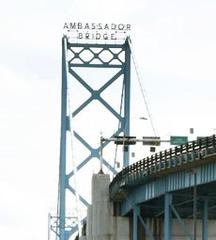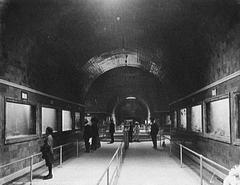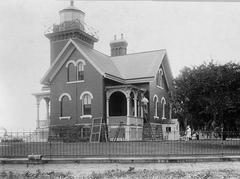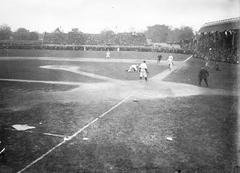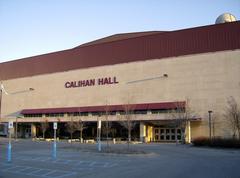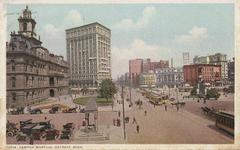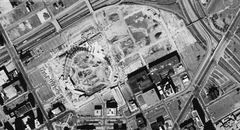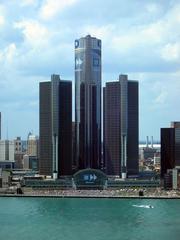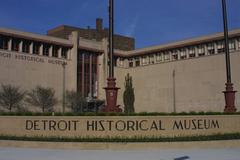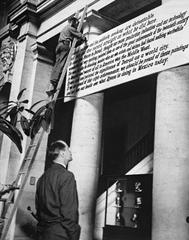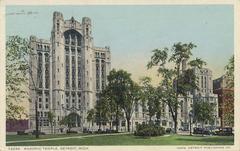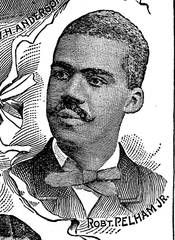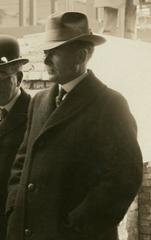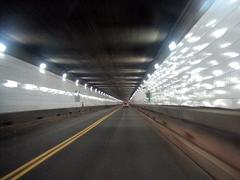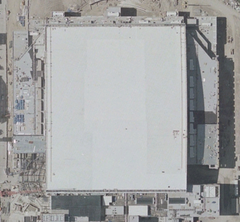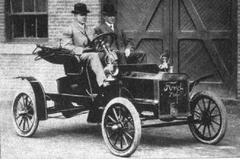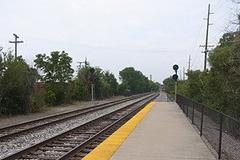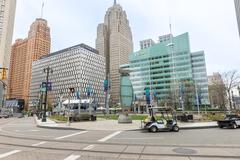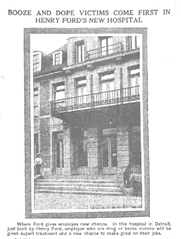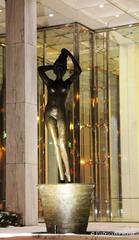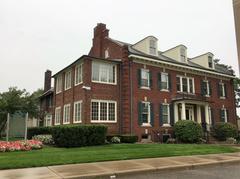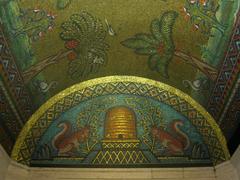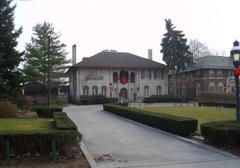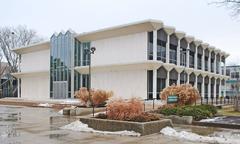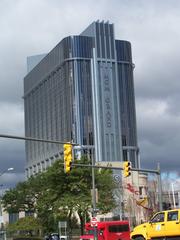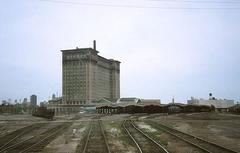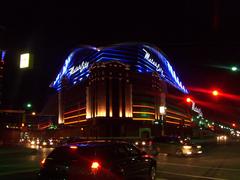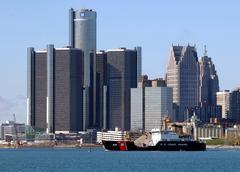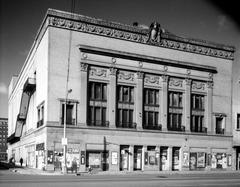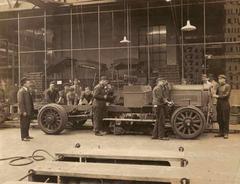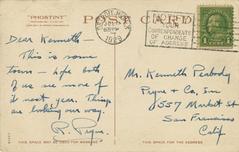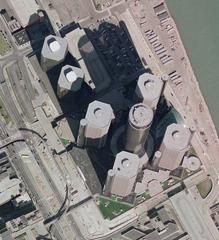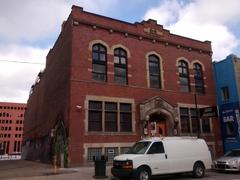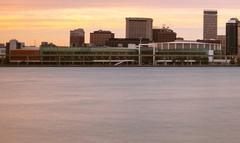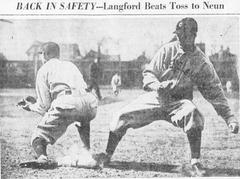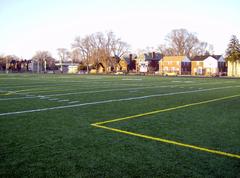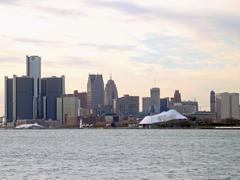Rouge Park Detroit: Visiting Hours, Tickets, and Guide to Historical Sites
Date: 14/06/2025
Introduction to Rouge Park Detroit
Rouge Park, spanning over 1,184 acres, is Michigan’s largest urban park and serves as a vital green space within Detroit. Established in the early 20th century, this expansive park offers a unique combination of natural beauty, rich cultural heritage, and diverse recreational opportunities. Visitors can explore woodlands, wetlands, native prairies, and the picturesque Rouge River—making it a haven for birdwatching, hiking, photography, and community gatherings (Rouge Park Master Plan, 2023).
Rouge Park’s land is deeply connected to the Anishinaabe peoples, including the Ojibwe, Odawa, and Potawatomi, whose enduring relationship with the Rouge River is honored through initiatives like the Ma’iingan Wildwood Trail and the Detroit Sugarbush Project (Detroit Metro Times; BridgeDetroit). The park’s development has paralleled Detroit’s industrial growth, notably influenced by the neighboring Ford Rouge Complex (Detroit Historical Society).
Rouge Park is open year-round from dawn to dusk with free admission. Notable amenities include the historic Brennan Pool, an 18-hole golf course, extensive trails, picnic areas, and playgrounds. Accessibility is prioritized, with paved and natural trails for all mobility levels, public transportation access, and ample parking (Detroit Parks & Recreation). The park regularly hosts seasonal events, Indigenous culture festivals, and community programs, making it an essential hub for neighborhood revitalization and community engagement (Detroit Parks Coalition; Tom Gores News).
For the most up-to-date information, visitors should consult official resources and local organizations (Friends of Rouge Park; City of Detroit Parks & Recreation).
Table of Contents
- Visiting Hours, Tickets, and Accessibility
- Early History and Indigenous Roots
- Development, Urban Expansion, and Industrial Links
- Social and Cultural Significance
- Environmental and Ecological Importance
- Modern Developments and Community Investment
- Challenges and Community Advocacy
- Frequently Asked Questions
- Plan Your Visit and Stay Connected
- Key Attractions and Recreation
- Visitor Information and Safety Tips
- Summary and Visitor Recommendations
- References
Visiting Hours, Tickets, and Accessibility
Rouge Park is open daily from dawn to dusk, year-round. Admission is free, and no tickets are required. Key facilities have seasonal hours; for example, Brennan Pool and the golf course operate from late spring through early fall. Parking is widely available at main entrances, including near Brennan Pool and Joe Prance Recreation Area. Major Detroit Department of Transportation (DDOT) routes provide public transit access.
Accessibility is a priority—many trails, recreation centers, and picnic areas are wheelchair accessible, though some natural paths may present challenges. For detailed accessibility information, contact park management (Detroit Parks & Recreation).
Early History and Indigenous Roots
The land comprising Rouge Park has been home to Indigenous communities, including the Ojibwe, Odawa, and Potawatomi, for centuries. The Rouge River provided essential resources and spiritual meaning. Present-day initiatives—such as the Ma’iingan Wildwood Trail and Detroit Sugarbush Project—celebrate and restore these Indigenous connections (Detroit Metro Times; BridgeDetroit).
Notably, Etta S. Wilson, an Indigenous ornithologist and journalist, is commemorated for her contributions to Detroit’s natural history.
Development, Urban Expansion, and Industrial Links
Rouge Park was established in 1923 as Detroit expanded and sought to create urban green spaces for recreation and health. The proximity of the Ford Rouge Complex—built between 1918 and 1928—underscores the park’s relationship with Detroit’s industrial era (Detroit Historical Society). The park’s creation provided much-needed recreation for the city’s burgeoning workforce and families.
Social and Cultural Significance
Rouge Park remains a cornerstone for community life in the Cody-Rouge neighborhood. It hosts family gatherings, sports leagues, equestrian activities, and the historic Brennan Pool. Organizations like Friends of Rouge Park and Detroit Outdoors facilitate youth camping, nature walks, and wildlife observation, helping reconnect Detroiters with the outdoors (BridgeDetroit).
Annual events like the Freedom Arts Festival celebrate Indigenous culture and the park’s historical figures (Detroit Parks Coalition).
Environmental and Ecological Importance
Rouge Park is Detroit’s ecological gem, supporting a mosaic of habitats—forests, marshes, prairies, and the Rouge River. The park is ideal for birdwatching, wildflower viewing, and environmental education. Projects like the Ma’iingan Wildwood Trail and the Sugarbush Project further ecological restoration (Rouge Park Master Plan, 2023).
Ongoing challenges include addressing river pollution and invasive species. Local groups work closely with city agencies to improve habitat quality and park accessibility (BridgeDetroit).
Modern Developments and Community Investment
Significant investment is being made in Rouge Park. In 2022, the Tom Gores Family Foundation, Detroit Pistons, and Detroit Parks & Recreation announced a $20 million community center, set to open in 2026. This 25,000-square-foot facility will offer sports, education, and gathering spaces for more than 24,000 local residents (Tom Gores News).
Challenges and Community Advocacy
Rouge Park faces issues such as public safety, especially concerning the Detroit Police Department’s gun range, and the need for ongoing environmental restoration (BridgeDetroit). Community organizations advocate for transparency, responsible land management, and recognition of Indigenous rights, highlighting the importance of shared stewardship.
Frequently Asked Questions
What are the visiting hours?
Rouge Park is open from dawn to dusk, year-round.
Is there an entrance fee?
No, admission to Rouge Park is free.
Are guided tours available?
Occasional educational walks and programs are offered by local organizations; check Friends of Rouge Park for details.
Is the park wheelchair accessible?
Many trails and facilities are accessible, though some natural areas may be challenging.
Are dogs allowed?
Yes, dogs must be leashed and cleaned up after.
Can I swim in the Rouge River?
No, swimming is only permitted in the designated pools.
Plan Your Visit and Stay Connected
Address: 19200 Outer Drive, Detroit, MI 48223
Parking: Free at multiple lots throughout the park
Public Transit: DDOT routes serve nearby; check schedules for updates
For the latest information about events, facility rentals, and accessibility, visit rougepark.org or the City of Detroit Parks & Recreation Department.
Download the Audiala app for interactive maps and guided tours.
Key Attractions and Recreation
- Brennan Pool: Historic 1929 Olympic-size pool, open seasonally.
- Rouge Park Golf Course: 18-hole municipal course with a driving range (Rouge Park Master Plan, 2023).
- Scout Hollow Campground: Detroit’s only urban campground.
- D-Town Farm: Urban farming and food justice site.
- Alexander Jefferson Model Airplane Field: Model aviation events and plaza honoring a WWII hero (Hoodline, 2024).
- Buffalo Soldiers Heritage Horse Barn: Horseback riding lessons and history education.
- Lahser Marsh and Prairie Gardens: Birdwatching and pollinator habitat.
Recreation:
Trails for hiking, biking, mountain biking, and equestrian use; archery range; sports fields; playgrounds; sledding hills in winter.
Visitor Information and Safety Tips
-
Hours: Dawn to dusk; facility hours vary by season.
-
Entry: Free; some activities (golf, pools, camping) require fees or permits.
-
Restrooms: Available seasonally at main areas.
-
Safety:
- Visit during daylight.
- Remain on marked trails.
- Do not leave valuables in vehicles.
- Be aware of poison ivy and ticks.
- Emergency call boxes are available near main facilities.
- Travel in groups when possible (Travelsafe Abroad).
-
Accessibility:
- Paved and natural-surface trails for wheelchairs and strollers.
- Contact the park for specific accessibility needs.
Summary and Visitor Recommendations
Rouge Park is a cornerstone of Detroit’s urban landscape, blending ecological diversity, cultural heritage, and vibrant community life. Its extensive recreational amenities, free access, and ongoing investments—like the new community center—make it a must-visit for both residents and tourists. Visitors are encouraged to respect natural habitats, participate in community stewardship, and enjoy the year-round beauty and history that Rouge Park offers (Metro Times; BridgeDetroit; Detroit Parks & Recreation; Friends of Rouge Park).
References
- Rouge Park Master Plan, 2023
- Detroit Metro Times, 2023, The Journey to Re-establish Ma’iingan Wildwood Trail
- BridgeDetroit, 2023, Can the Police and Public Coexist at Rouge Park?
- Detroit Historical Society, Ford Rouge Complex
- Detroit Parks Coalition, Freedom Arts Festival
- Tom Gores News, 2022, Inspired by Voices Inside Pistons Organization
- Detroit Parks & Recreation, Rouge Park
- Friends of Rouge Park
- Hour Detroit, Rouge Park
- Travelsafe Abroad, Detroit
- Hoodline, 2024, Alexander Jefferson Statue and Plaza
